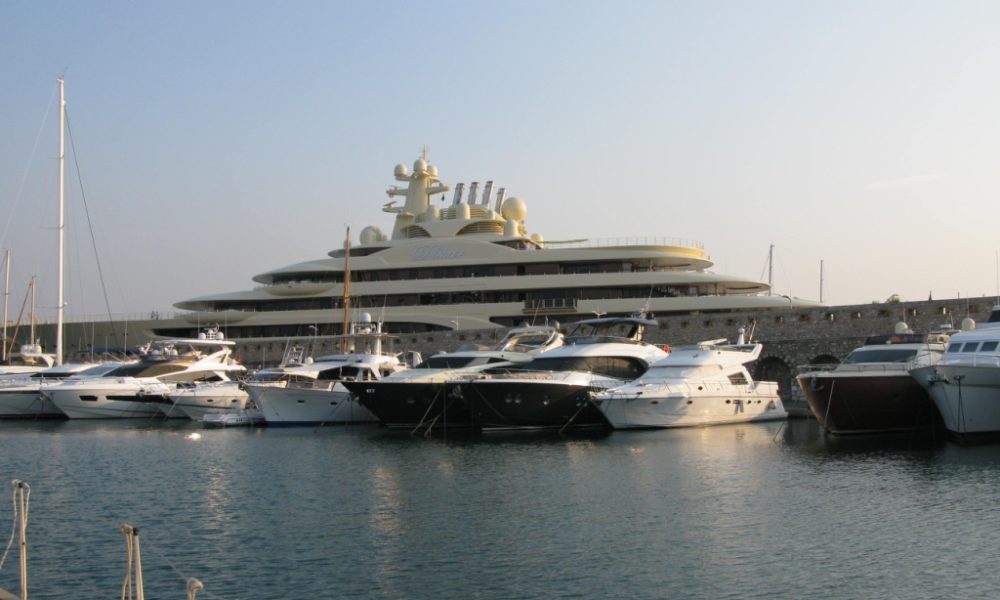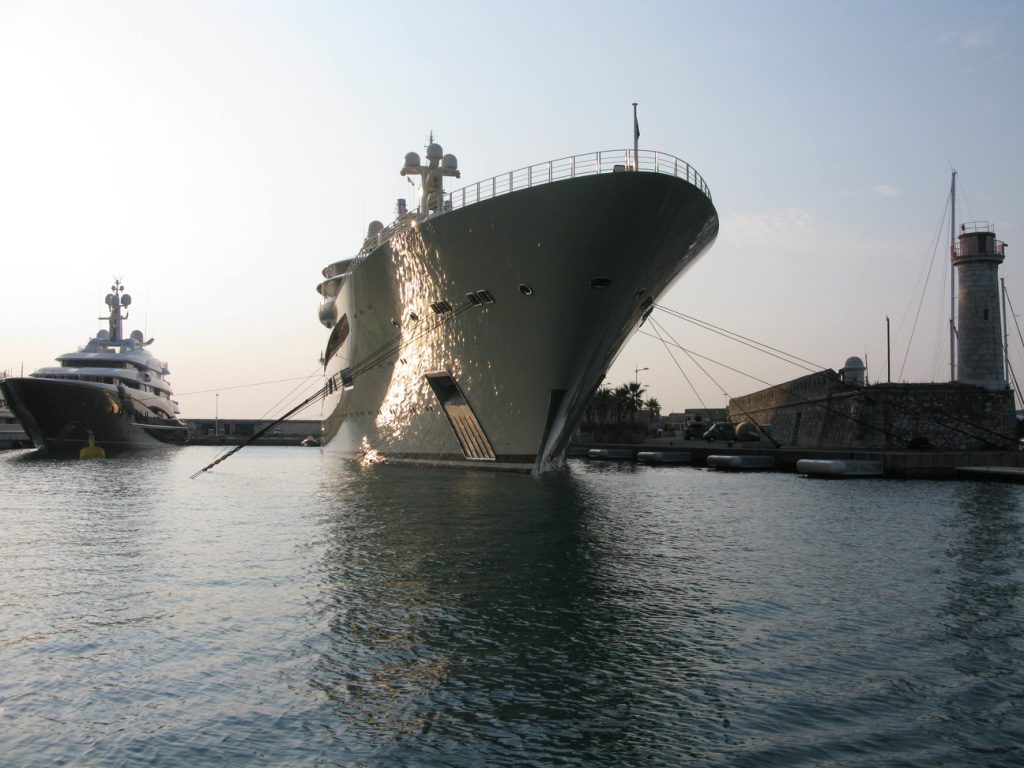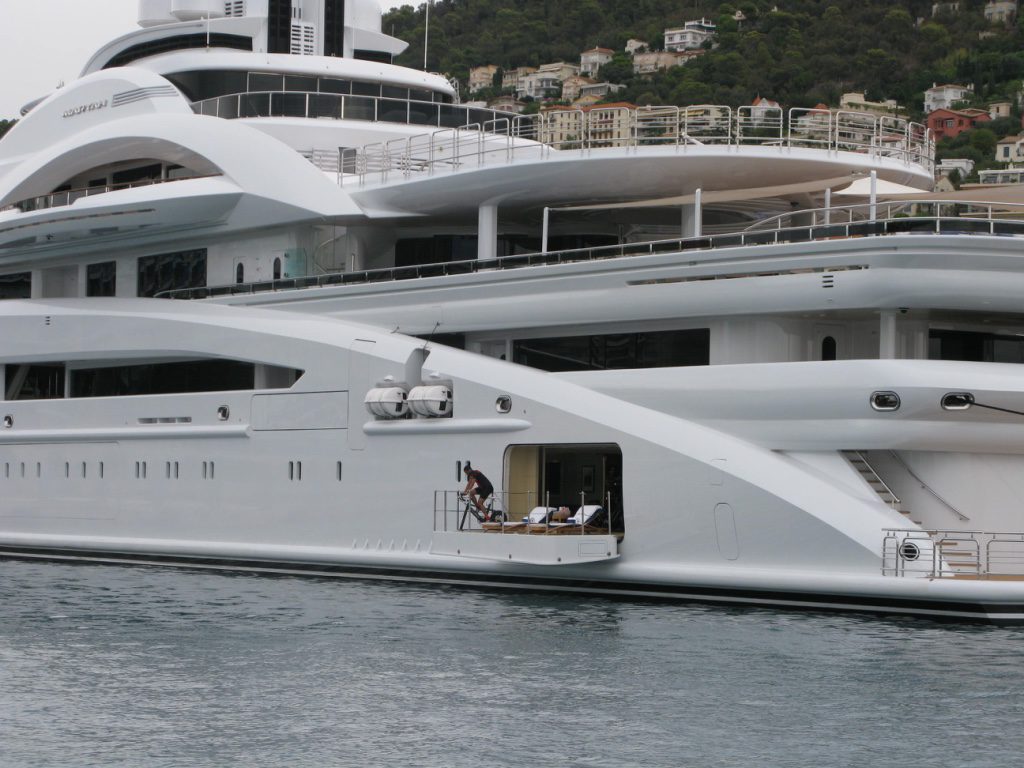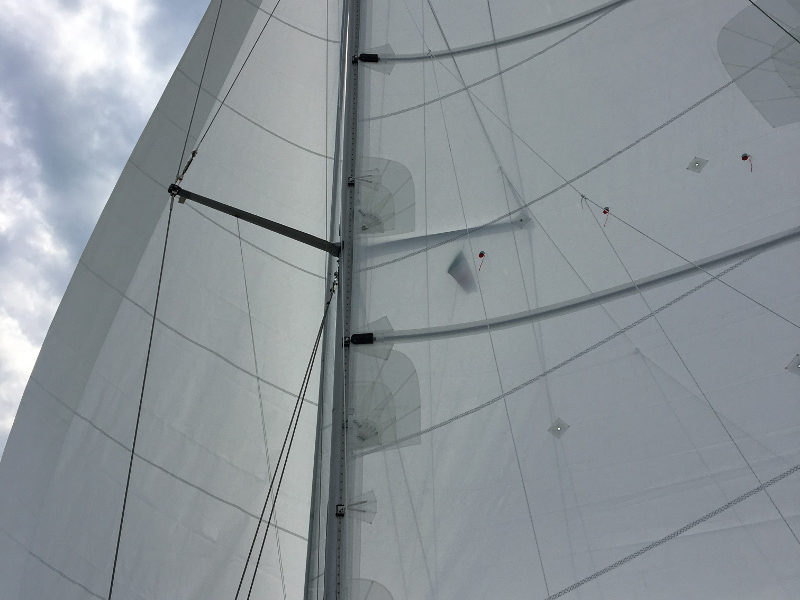
Under brand new sails cruising the Levant – ahead of the spring
43° 6′ 1.188” N 10° 32′ 13.6608” E
April is a wonderful month for sailing in the Mediterranean. You have virtually the sea all to yourself, in the marinas there is always a berth, and the temperature is friendly for northerners like us. A bit chilly at night but mild and sunny during the day. The Italians are still huddled behind winter coats, but danes focus on the fact, that spring is at least one month ahead of Denmark.
The trip from Genoa to Portovenere was 47 nautical miles. Now we take another two days each sailing the same distance. We want to get down to the real goal of this early spring sailing – Elba and Corsica.
The first stretch takes us to Marina di Pisa, one brand new marina near the Arno river mouth. The next stretch takes us to San Vincenco, another brand new port. And from here there is only 20 nautical miles out to Elba.
It gets rather transport-like, when you take distances of 40 or 50 nautical miles each day. You are easily under sail/motor for at least ten hours a day. But we enjoy our new sails, that were delivered in Genoa, and we take turns in the cockpit. One of us is alert, while the other one is off duty for an hour, reading or resting.
Fact: As well Marina di Pisa as San Vincenco are so-called “price band 6-ports”. Yet the first marina take 50 euros for one night, while the latter just 27 euros. The difference is, that Marina di Pisa has decided, the season starts on April 1. Even if there are virtually no sailors in the waters.
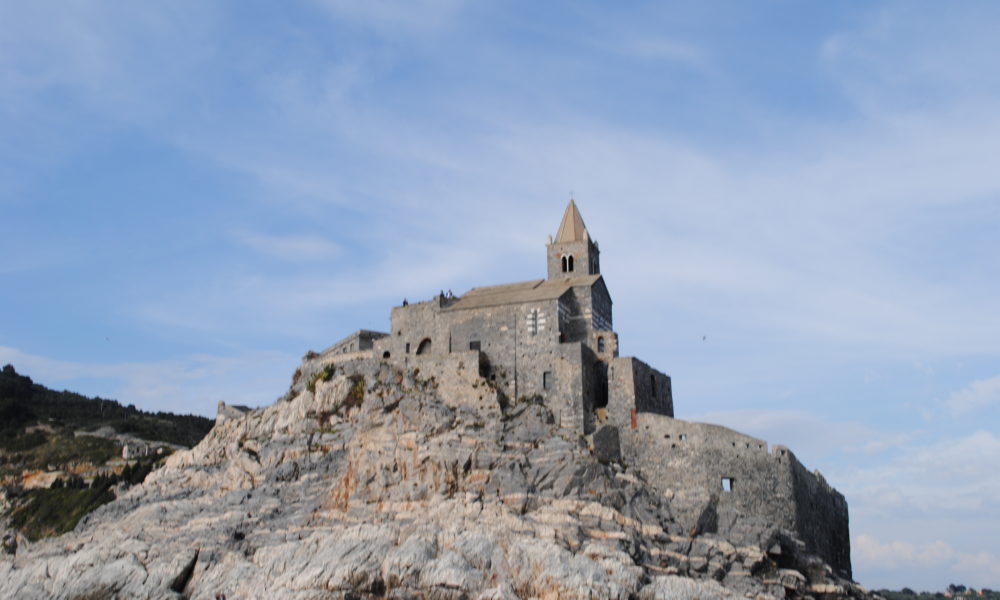
How to practice the rare art of negotiating a price upwards
44° 3′ 11.1852” N 9° 50′ 18.3372” E
“He says, the price is five euros!” Skippers wife is standing in the bow talking with the harbourmaster
We have just slipped into a vacant berth at Pontile Ignazio – a simple pontoon bridge, electricity and water on the bridge, but no toilet and shower facilities. We are way outside high season, so why not? Five euros sounds like a fair price. Anyway: This is Italy.
After ten hours of sailing from Genoa upwind and with rather high waves we wanted to make a stopover in Portovenere between Cinque Terre and La Spezia. But a call on the phone turned that plan down. “Sorry, we have a sailing regatta, the harbour is full.”
Instead we found this simple pontoon a bit north of Portovenere. Skippers wife does not speak Italian. The harbourmaster does not speak English.
“Now he says, the price is 14 euros,” she shouts from the bow of Ronja.
14 euros? Not 15 euros? She hurries back to the cockpit to get even money and to pay this still rather cheap price. The harbourmaster has in the meantime found his phone, and writes the real price: 50 euros.
Back we are in Italy. 50 euros for little more than nothing.
Portovenere is cozy, historic and picturesque. One half of the population serves food to the tourists. The other half sell local souvenirs.
It is a beautiful place. Church, fort and fortifications are chiseled into the rocks. Water all around. Back in the cockpit we have the exclusive possibility to enjoy this unique location. Life is great. And the lovely wife of skipper masters the rare art of negotiating a price upwards.
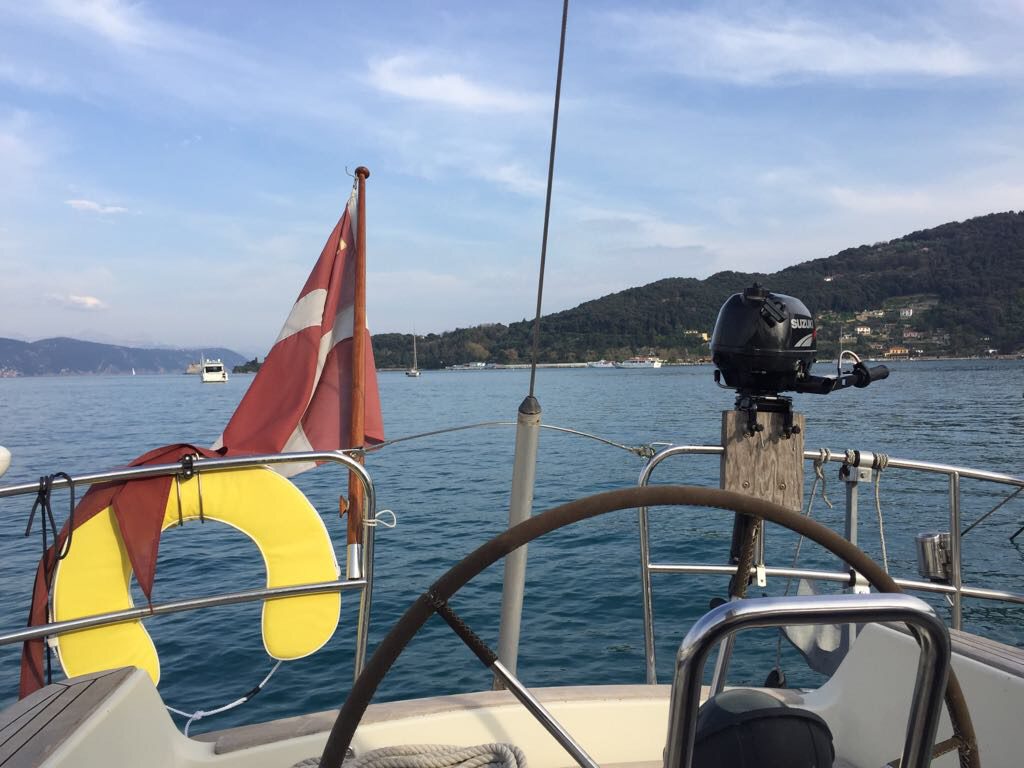
Fantastic view
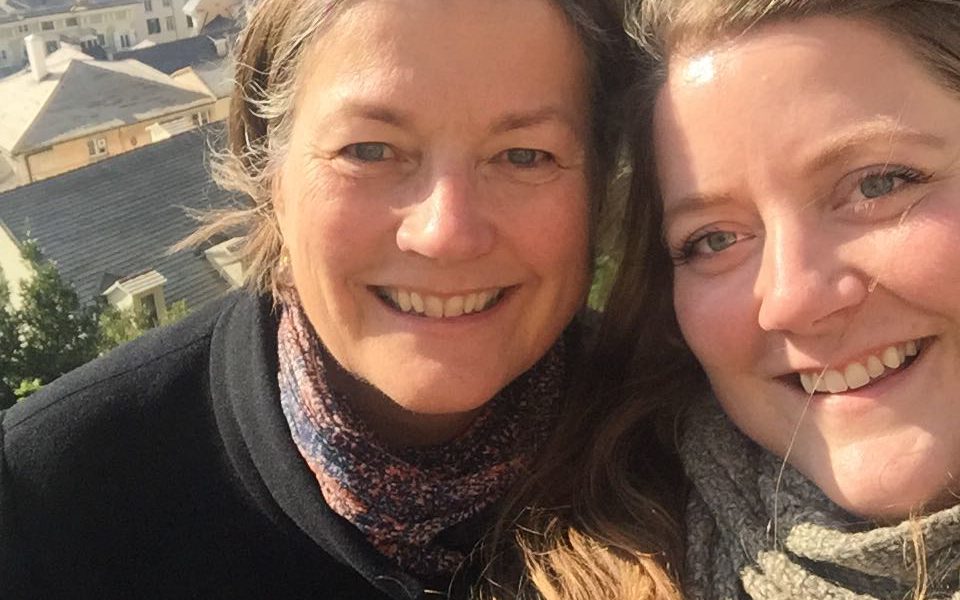
Genoa does not win at first sight
44° 24′ 39.06” N 8° 55′ 24.5352” E
Course Genoa. Full sail. Great sailing. The harbour of Genoa is huge. You turn into the harbour and you keep sailing and sailing and sailing, the harbour just goes on and on. Ferry berths, container ports, yachts. This port is mega.
We are received like the lost but now returning son. “Ahh, Ronja,” they say, as we call the harbour office in advance and tell them, that we are arriving. “Ahh, Mister Westergaard,” they say, as we enter the harbour office. We have already a couple of months ago agreed with the harbour office in Genoa, that Ronja shall spend the winter from October 1st to late March, so we have been writing together and agreed on price and conditions through numerous emails prior.
Genoa is not a beautiful city. It’s a rough town, with its poverty, and its most worn buildings facing the harbour. There are no showy facades with upscale restaurants. Here are halal butchers, souvenir shops, beer bars, dubious electronics stores plus a jumble of street vendors selling umbrellas, selfie-sticks and copies of Gucci-bags and Rolex watches.
The port population has a conspicuous large percentage of immigrants from Africa. The neighborhood is a complex network of alleys, narrow streets lined with five-storey buildings on each side, where the sun never reaches the street level. Worn. Dodgy. Prostitutes on street corners. The waste flows. Unsafe after dark.
This does not mean that the city has no beautiful buildings. In between we find the most stunning and beautifully renovated palaces and cathedrals.
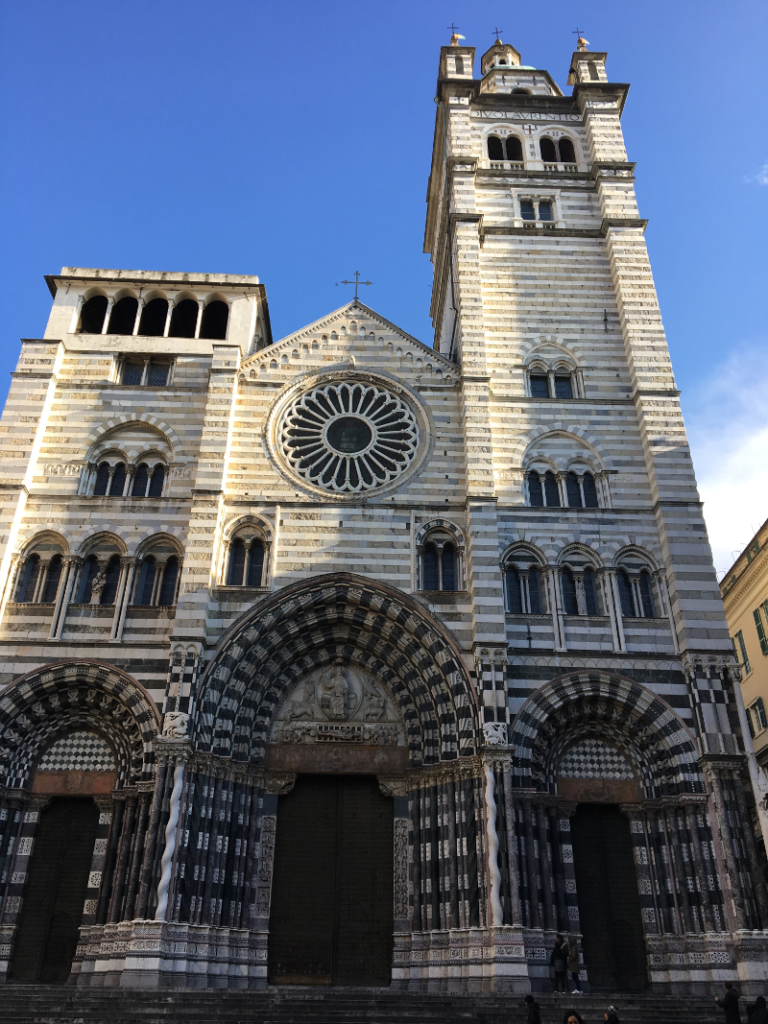
San Lorenzo Church in Genova is beautiful!
It is a city, you have to work with. Only when you reach deep into the city, you find its beauty, charm and nuances.
Ronja has had winter harbour in Marina Porto Alto for nearly six months and each time we visit Genoa, our respect for the city is increasing.
When one day we inadvertently wander into a suspect tunnel for cars, we happen upon a rickety elevator, take it up and suddenly find ourselves in a wonderful space with roof gardens and magnificent views of the port area of Genoa.
When we look for genuine Italian cuisine, we find lots of good options. Taverna Di Colombo is small, good and cheap. The host plays jazz and Leonard Cohen and serves a heavenly minestrone soup.
In Genoa we also meet interesting and nice people from the British yacht “Red Rooster” – Derek and Claire – who have chosen to go “all in” on sailing in the Mediterranean. They have sold their home in London, said goodbye to good jobs and have now spent two years full time aboard”Red Rooster”. https://www.sailingredrooster.com/form__map
We met them earlier along the italian coast, and it was great to see them in Genoa. The first evening they invited us to “Red Rooster” with beer, chips and exchange of experiences among sailors. The next evening they came to Ronja and we continued the exchange of experiences on sailing and in particular the considerations of whether a new boat would fulfill the dream of “the perfect boat” or in fact small changes on your own boat could be as good as an expensive, new boat.
Interestingly Claire had been a headmaster in her civilian life in England, just like Kirsten had in Denmark. Both have very recently left school management positions. Kirsten in her early 60s. Claire in her final 30s.
Now it’s April. A new season is upon us. We clean the boat, we get a diver to scantily clean the screw, cooling water intake and bow thruster. “Mamma mia,” he says, after he has been below Ronja with brush and scraper. Six months in winter port leaves its traces.
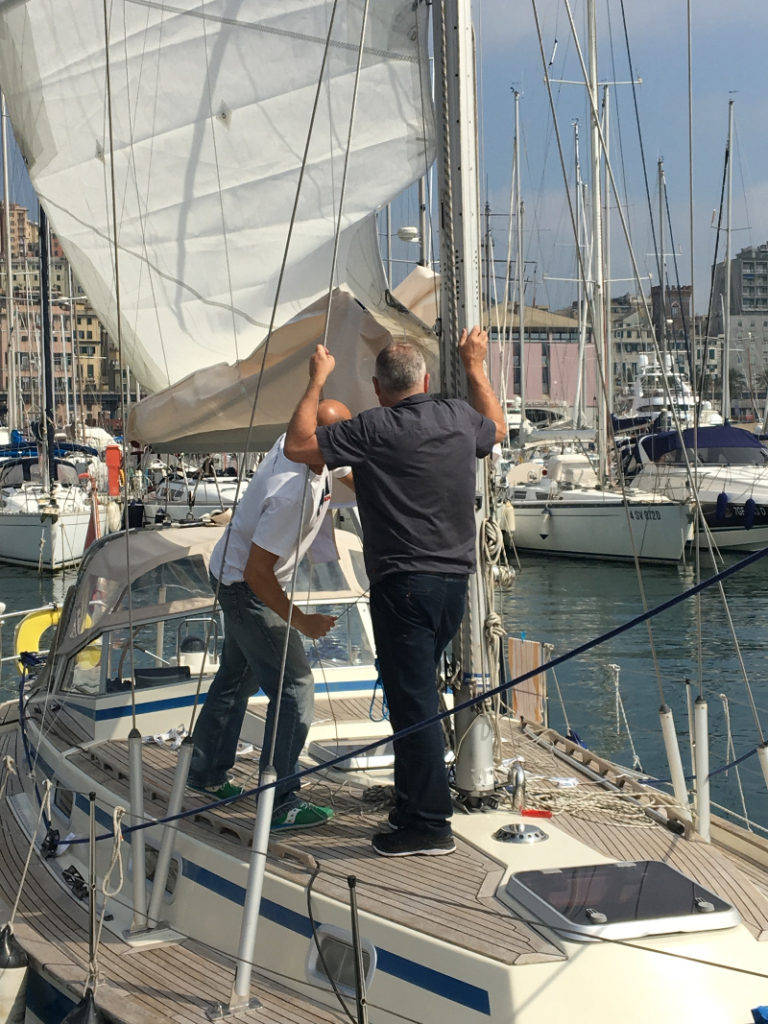
New foresail and main sail. Yeahh!
We raise our brand new sails from North Sails and set out for new adventures.
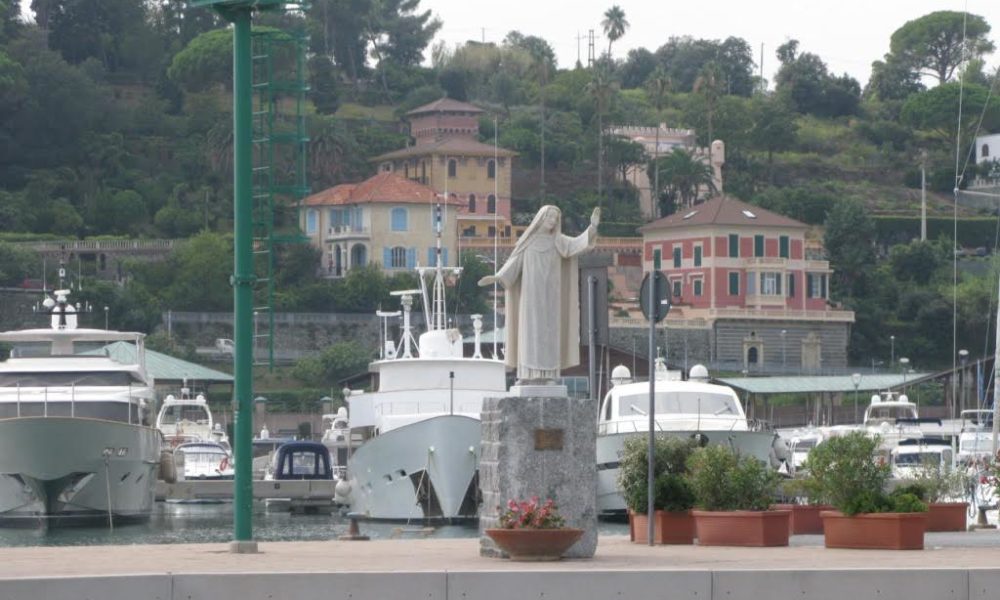
Varazze – expensive but boring
44° 21′ 14.5584” N 8° 34′ 6.5028” E
September 28, 2016
We are in Varazze. An exclusive port. The price is € 67 for one night. The harbour is surrounded by modern buildings with restaurants, shipbrokers, fashion boutiques and shops with expensive toys for saillors.
The city resembles Loano with a long beach divided into private pieces each renting sunbeds and then a very long shopping street in the next rank parallel to the beach.
The city seems worn. The port’s wifi does not work, and as a whole Varazze can not match Loano invigorating charm and immediacy. We sail on the next morning.
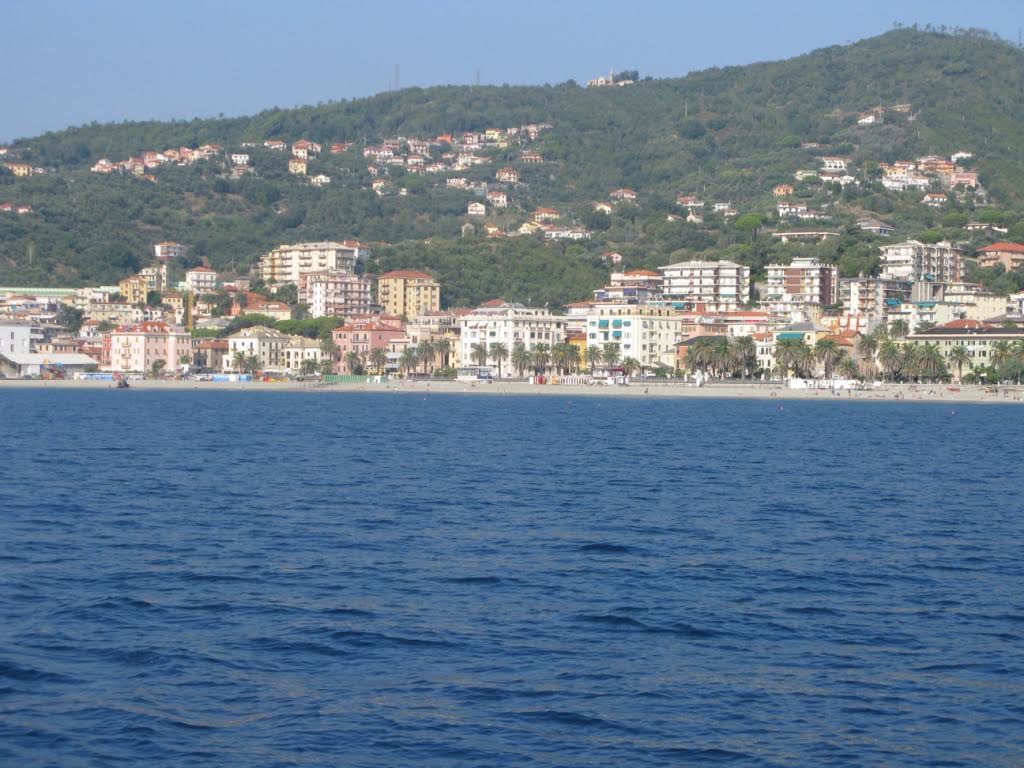
Varazze seen from the seaside. Beautiful. But you should rather go to Loano instead
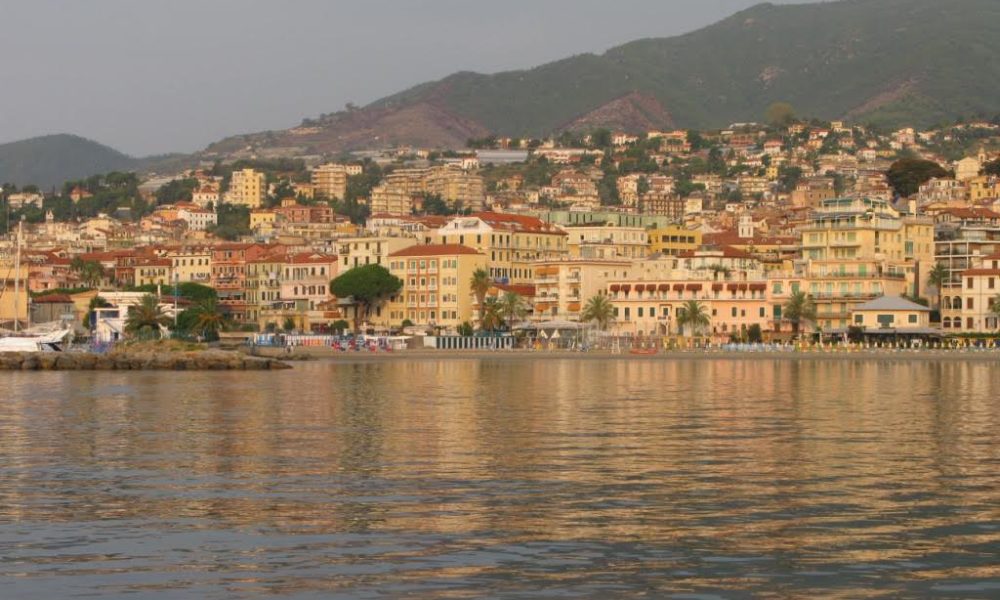
Wonderfull to be surprised by the unexpected. Loano is magnificent
44° 7′ 58.8792” N 8° 16′ 1.7724” E
September 25, 2016
We set sails for Finale Liguria. Our british friends, Derek and Claire, have researched on the internet, and they concluded, that in Finale Liguria you can get a mooring for “just” 48 € a night. After having fought for hours directly against wind of 11 meters per second, we find this too tiresome and hard. We decide to look for an earlier port.
At first we call the city Alissia on VHF channel 9. But they are having a regatta – the harbour is crammed. Instead, we choose the next port, which is the city of Loano, which we know absolutely nothing about. It is hardly mentioned in our guide books.
Loano is an enchanting acquaintance. It is a popular city. Full of life. Obviously this is, where the Italians themselves go for beach holidays, there is a party going on in the city from early morning with playgrounds, marketplaces, cafes and scores of private beaches.
The port is newly built. Large landscaped. Nice thought. Visionary. The middle part of the port is built in a a maritime style – like a giant ship – with port offices, restaurants, toilets, shops and business offices. Talking of toilets, we have never met toilet-facilities at the same level of Loanos – private shower-rooms each with a sink, a toilet and a bidet. First class. Absolutely.
Not all offices and shops have been rented. There is still some way to go, before the harbour fulfills its ambitions, and it may be the explanation for the prices, we are faced with for staying overnight in Loano. An berth costs 52 € for a night. “Hey”, we say. It’s cheaper than in Sanremo. But then they throw in the joker: You can get three nights for two night price.
Hallo! Three nights for € 104. It is 34.5 € per night. We are back at french prices!
Loano is a city without a single spectacular sights, but the city is a charming attraction in itself It gives us an insight into the way regular Italian lives, relax and have their holidays. And we experience how a city works, when it is not yet – as French and Danish cities – have been taken over by large retail chains.
The shopping structure is very much like in Denmark som decades ago, based on small specialist shops. The butcher also sells water and wine. The shop with fresh pasta also sells prepared meals. The bar sells wine out of the house. And the baker deliver pizzas and foccacie sandwiches.
It is a zig-zag running among the shops, it take hours to shop for a meal. Skippers wife think it is charming and incredibly great.
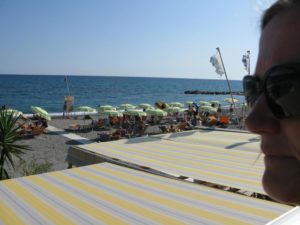
Beaches are good and private. Off season prices in september are 12 € for two sunbeds
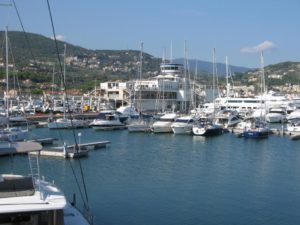
Marina of Loano. Great architecture. Excellent harbour
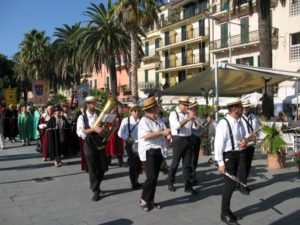
Loano is a very lively city with music and parades
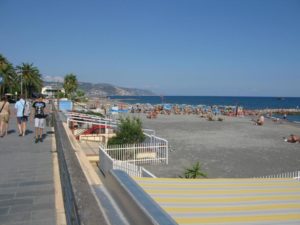
Loano is kilometers of sandy beaches
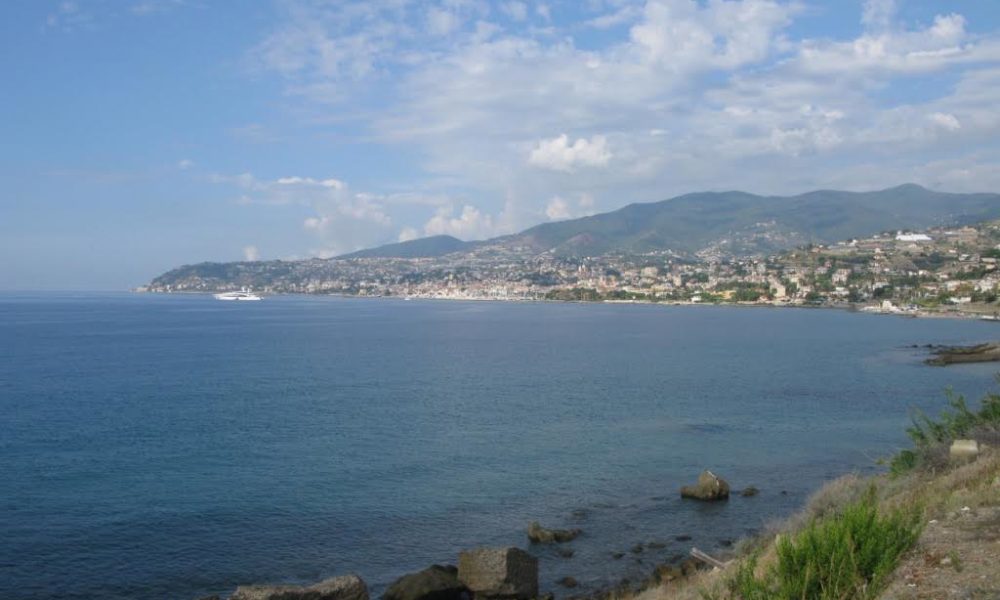
Love at first sight in Sanremo
43° 49′ 6.1788” N 7° 47′ 16.2168” E
September 22, 2016
The big topic of conversation among sailors arriving from France to italian Sanremo, is the exorbitant high port rates. “Horrible! It is twice as expensive to be in a port in Italy as in France! We did not expect this,” says Derek Williams in his boat, Red Rooster, from England. He and his wife, Claire, searches for alternatives and finds an unauthorized berth without water and electricity in Sanremos old municipal port. Here they moor for free in two days.
It’s a bit of a surprise to move from France and into Italy. Over the months we have been accustomed to a French price level, which essentially is 31-35 € for a night in all the old harbours of the major cities, when we arrive with an 11 meters long and 3.5 meters wide sailing-yacht. Only a few times the price has been higher like in St. Tropez and Porquerolles.
It does seem odd, that the price of in first italian city, we run into, is 66 € for a berth, that in many respects is inferior to many french harbours – much longer distance to the bathrooms. Noise on the quay in the evening. Quite a distance to the shops in the city. And a totally useless wifi.
€ 66! For what?
Nevertheless we stay another two days in Sanremo’s new port, Porto Sole, and we discovers that Sanremo is a truly fascinating, a really delightfull city.
The city mixes ancient grandeur and richness with modern shops, and yet we get the feeling, that here time stood still for a several decades. You buy milk and cheese in shops like dairy stores of the 1960’ties in Denmark, and there are so many more small specialty shops, than we are used to in our part of Europe.
A disused railway along the coast have been converted to 24 kilometers of beautiful bike path. We work the pedals of our sailing boat-bikes, and we have a wonderful trip out and a wonderful trip back.
After the bike ride, we find ourselves a large café in Sanremo, where we make observations about the differences between italian people and french people. It seems as if the italians are more happy, more unpretentious and more open than the french. Could this be prejudices? Perhaps. But it is like a great party to sit at the coffee shop in Sanremo. There are shouting and laughter and clashes on the shoulders and on the outermost rows of the café sits the old people of the town, watching the fun with a cup of coffee, that has to last half a day.
It may well be, that port dues are higher in Italy, but our impression is, that the prices for food and beverage in a supermarket or in a restaurant are quite a lot cheaper than in France. Our estimate is, that high harbour fees, are reasonable balanced by cheaper prices for food and beverages.
For us, Italy is love at the first sight.
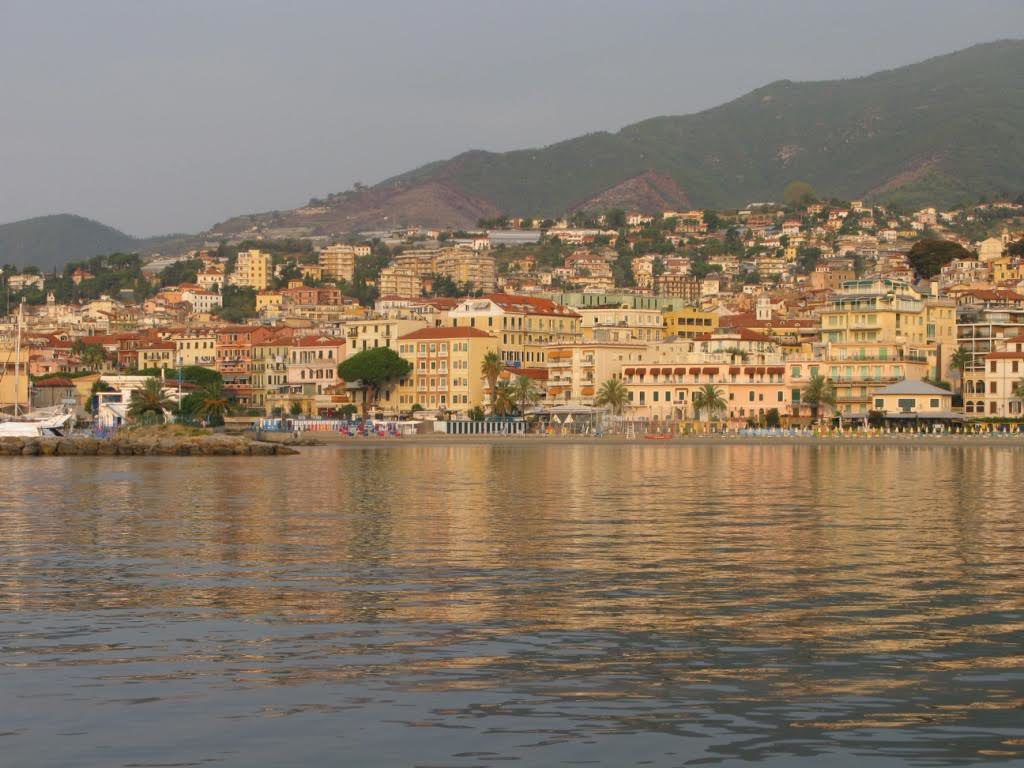
Sanremo deserves more than the two days, we were able to spend in the city
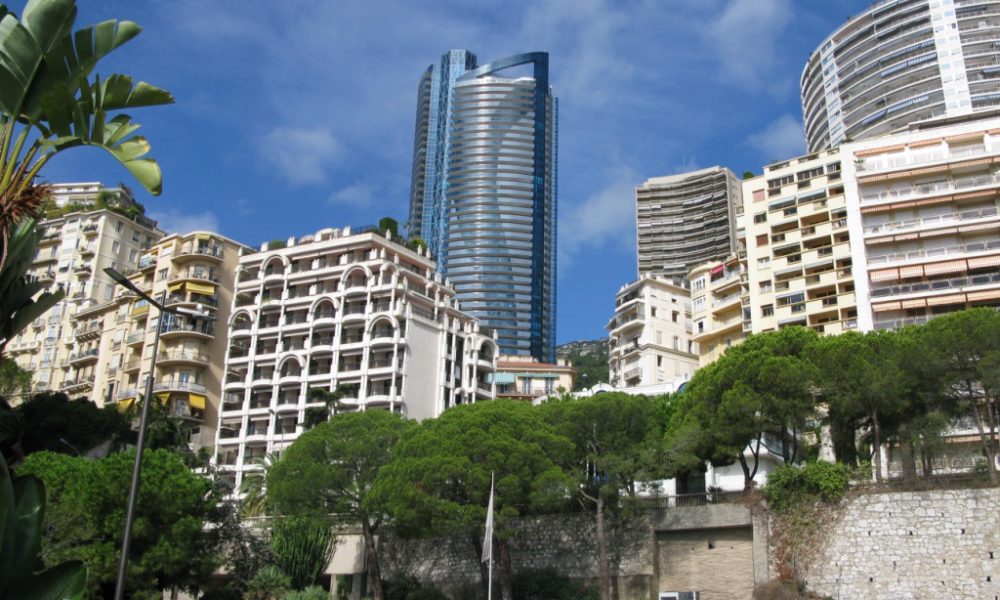
Fun to look inside Monaco, but please do not make us stay there
43° 44′ 13.0308” N 7° 25′ 42.2004” E
September 20 – 2016
What do you do, when 40,000 inhabitants and a lot of tourists have to live in just 197 hectares? You stack them. You make sure that several basements are reserved for roads and parking lots. You make sure, that the next floors over the basement floors are reserved for shopping streets, and that the next 20-30 floors are residential areas.
It takes planning, and they are obviously good at that in Monaco. A bit like in Hong Kong. In Monaco however, they have even more Ferraris and Porches in the streets and even more marble tiles on the sidewalks.
We chose to ignore the tiny state as we passed it during our French-Italian Odysee. A few days later however we had a sneak peek at the small principality, when we were hiking there from our harbour in Menton.
It’s fun enough to visit Monaco. But it will never be a preferred target for us. Allready when you look at Monaco harbour, you get the same feeling as in St. Tropez – that everything is about looks, everything is about appearing as flashy as possible, the harbour is all about paying service to the multimillionaire yachts.
There is nothing wrong with that. Monaco sends a signal about how they want the port to be seen. Many people may like that. We do not.
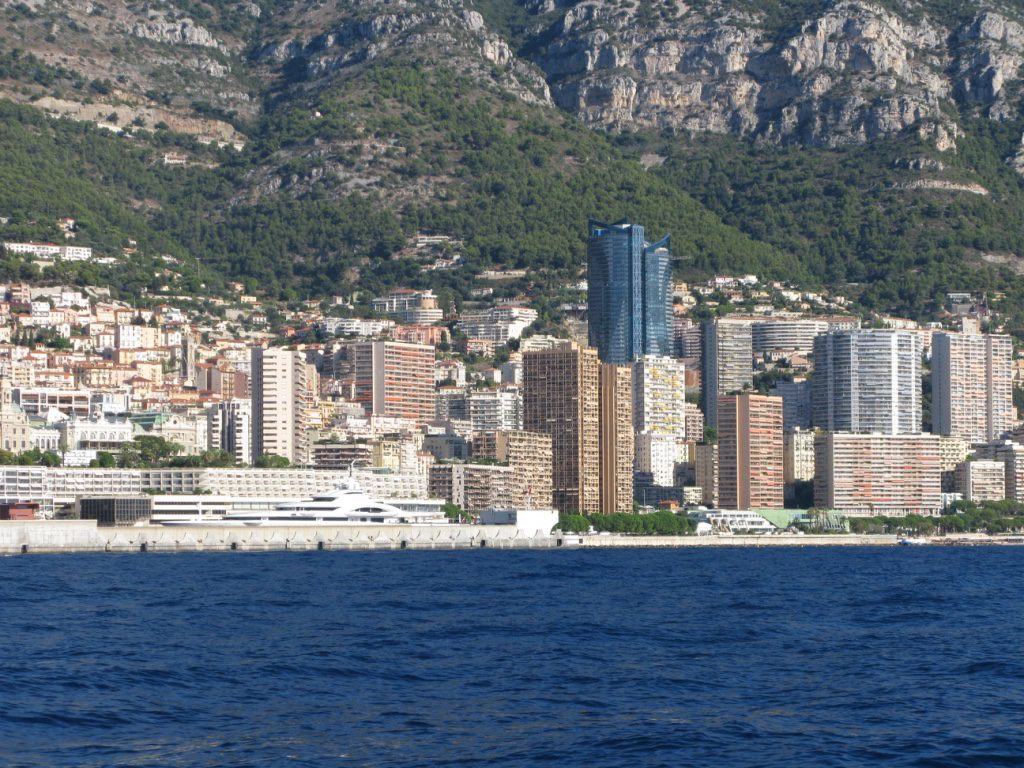
Monaco seen from the sea. The European Manhattan somebody says. Well, probably they are not quite right.
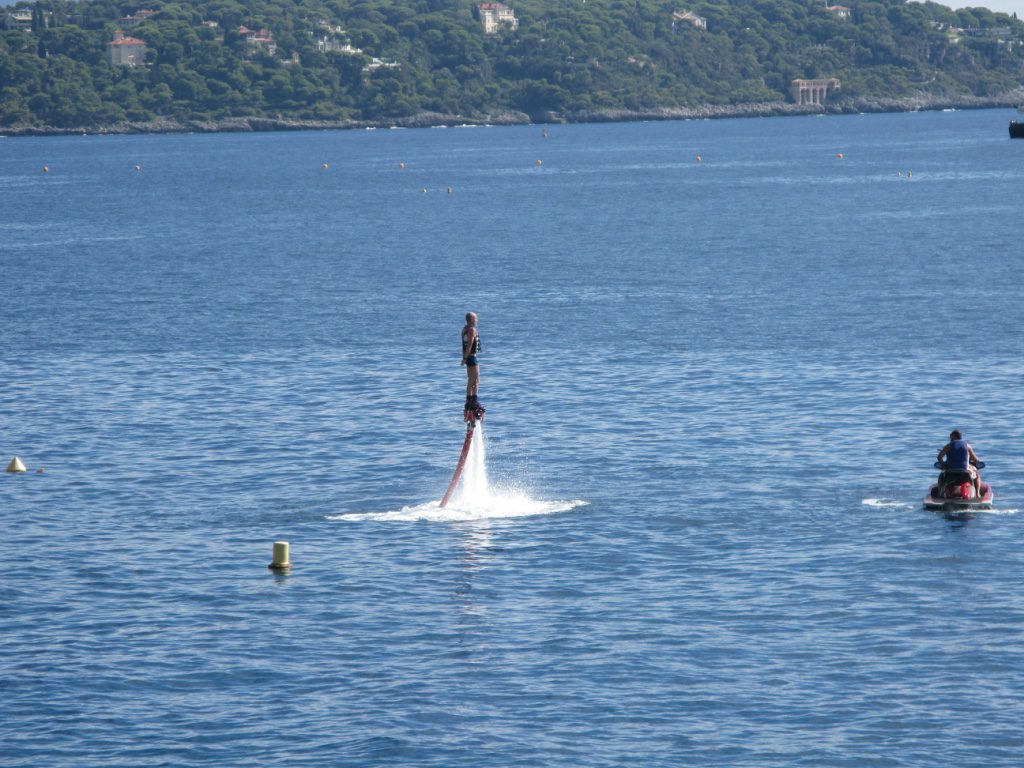
Smart in Monaco. Man practices going on the water…

… It is of course not easy. Pride comes before a big splash :-
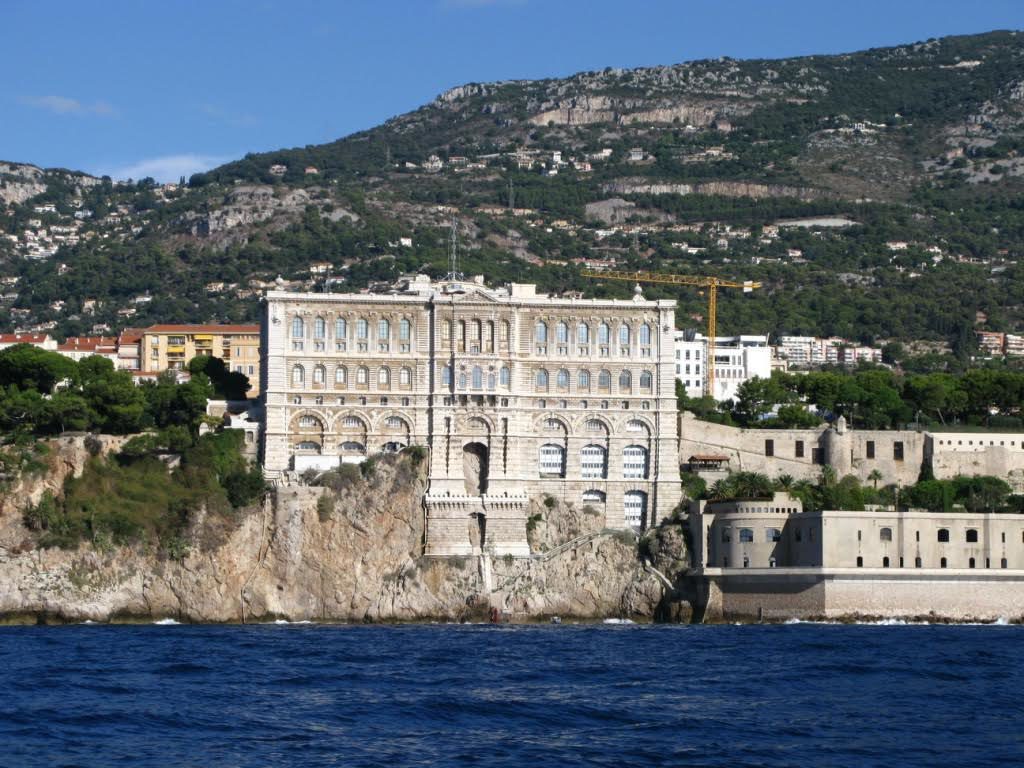
Seen from the sea Monaco is a charming blend of new and old
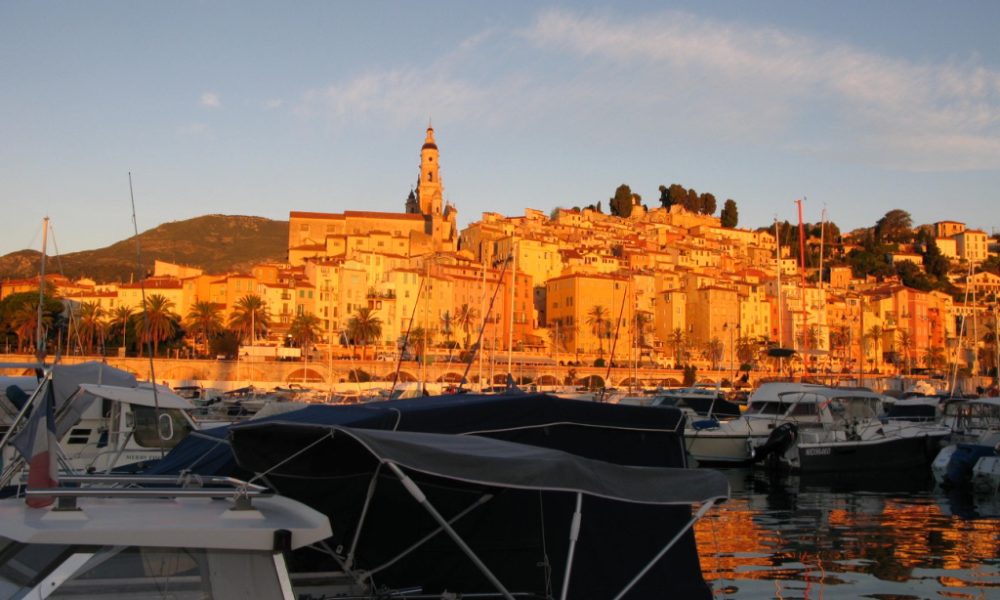
The golden capital in the land of lemons
43° 46′ 33.9024” N 7° 30′ 39.3444” E
September 19, 2016
The young clerk in lemon-shop is really angry, when he explains to a Russian tourist, that he must not use the same plastic fork to take samples of different glasses with lemon marmalade. “You need to take one sample with one fork. Then take another fork, if you want to taste one of the other glasses with jam, “said the clerk in English. His words were lost on the tourist, who continues his trip through the free tastings, while the clerk is getting more and more irritated.
We are in Menton – the city that makes the lemon to its characteristic with annual lemon festival and shops with everything in lemon flavor: Perfumes, spirits, soaps, oils, vinegar and jams.
Menton is a babylonian trainstation of cultures and nationalities, that are living together and occasionally – as in the lemon-shop – collide. The city is officially french, but with only one and a half kilometers from the Italian border it is as much Italian.
Other boats in the harbour carries both the French and Italian flag, and in the streets British, German, Russian, Belgian, Dutch and Scandinavian languages mix themselves catchy with French and Italian. Menton attracts anyone who loves a mild climate all year round. They settle. They visit. They taste. They enjoy.
Menton is a kind of mini-Nice. An old town at one end and at the other end a kilometer-long promenade, that stretches to the west. Restaurants, hotels, appartments, sunbeds, marketplace, beaches and freshwater showers. Everyone wants part in the sunny home of the lemon and its multicultural life.
Menton is itself and has its own charm with casino, nightclubs, cemeteries of the city’s most exquisite views and a few art museums. Compared to Nice missing the little wings, when it comes to history, art and architecture. Jean Cocteau, who in 2011 got his own art museum in the port of Menton, when an art collector, Severin Wunderman, donated 1,500 works to the city, do not compare with the Chagall- and Matisse-museums in Nice. No, not at all.
Multiculturalism in Menton also appears, when we arrive first in Menton Vielle Port and the day after in Menton Garavan. We call on VHF channel 9 and ask hopefully: “Parlez vous anglais?”
“No, mais nous parlons francais an Italian …”
Excellent. Finally, we are in a bilingual area. Just pity that the one language we do not master very good, and the second we do not understand at all.
Bonusinfo: If you are in Menton – or Monaco – do not miss the breathtaking hike around Cap Martin between Menton and Monaco. The trip takes a few hours and requires a large bottle of water each way. But hours and water is really worth the trip .
Another info: Forget your fold-out cycle in the bench of your boat! Traffic and steep roads make cycling to a dubious and dangerous pleasure. Only aging men in tricot on racing bikes defies the cyclist-hostile environment of southern France.
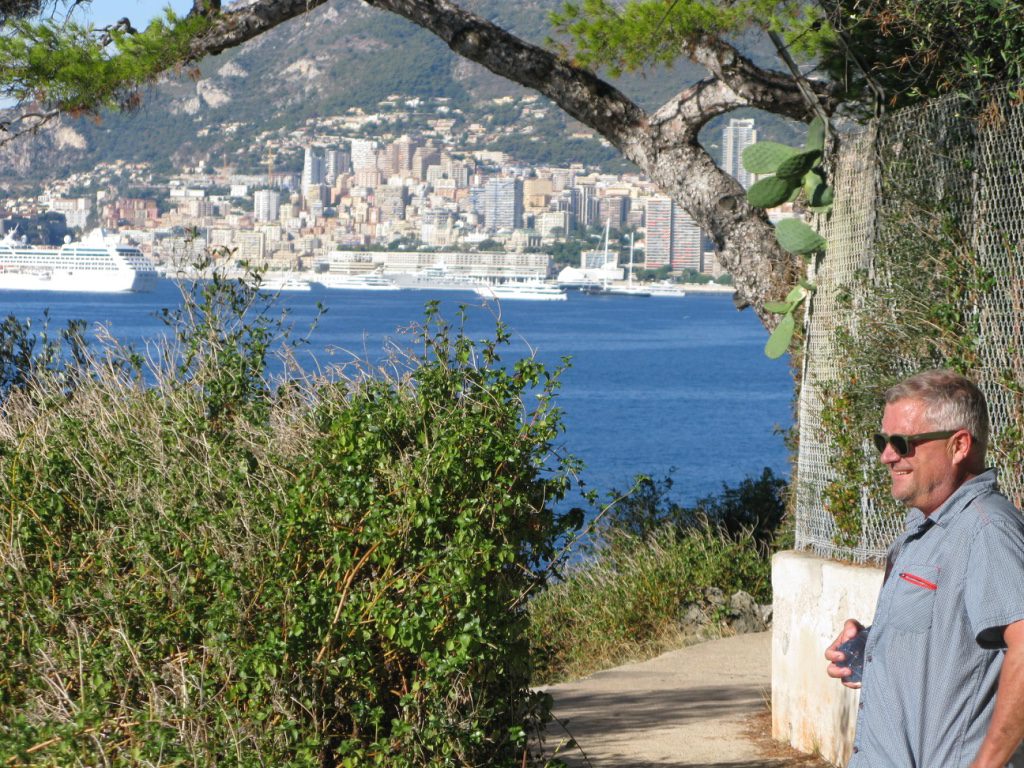
The walk between Menton and Monaco is no less than fantastic. Try it!
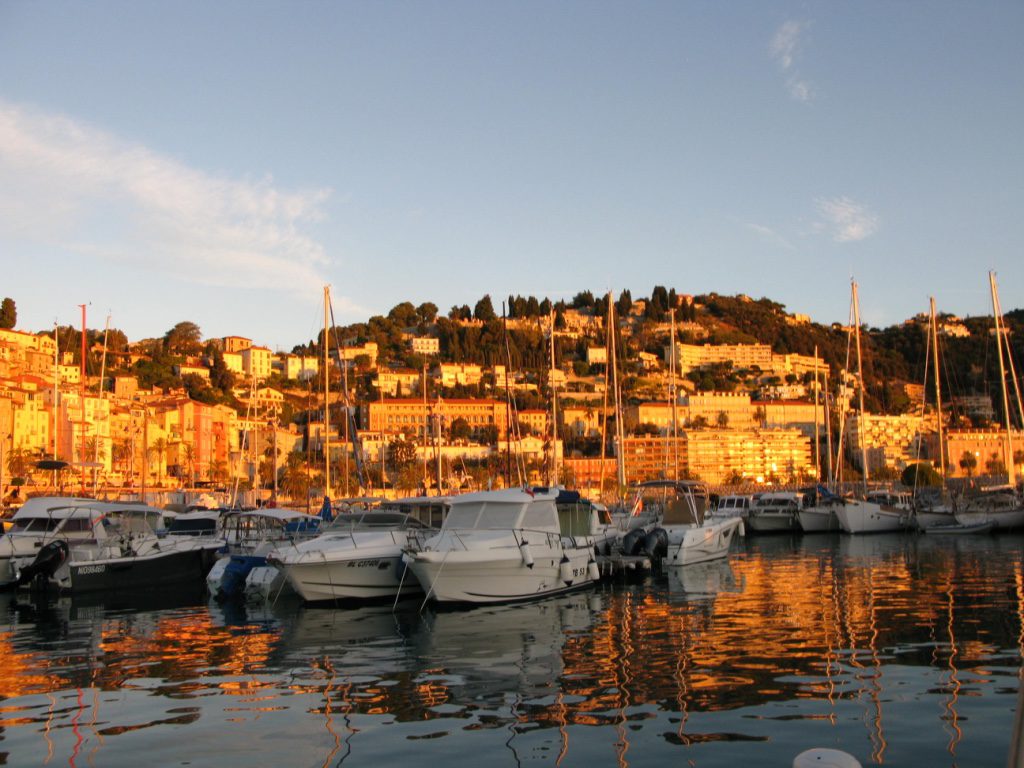
The two cemeteries of Menton are placed on hill-tops. Fantastic view over the sea. A beautiful place to be dead
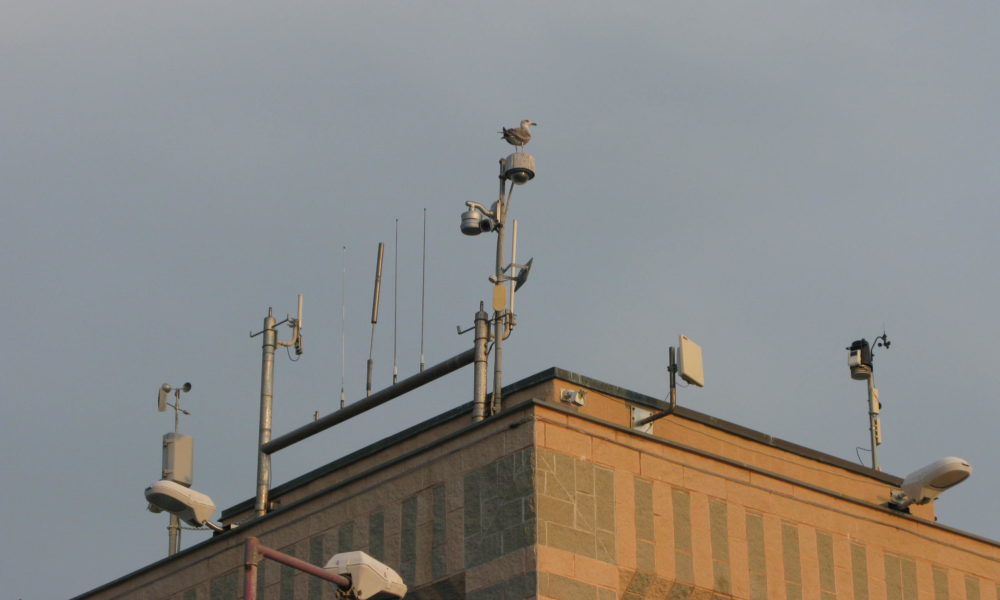
Biggest joke in the Mediterranean: Yes, we have Internet
43 ° 42 ‘31.1184’ ‘N 7 ° 20 ‘14.6688’ ‘E
September 17 – 2016
“Do you have wifi“? (Remember in France it is pronounced not waifai but weefee).
“Yes, we have wifi. And occasionally it even works,” answers the port captain in Beaulieu-sur-mer, France, when we ask to his wifi, and that answer, we have heard also from other truthful port captains.
The less truthful port captains – and they are in the majority – just print with usual self-importance a code for the internet. “Here You are, sir. This is your special password to the Internet“.
This is the biggest joke in the Mediterranean. French harbours have no wifi. And the same goes with a lot of italian harbours.
It is “The emperor’s new clothes” – the fairytale of the Danish writer, Hans Christian Andersen, in which two crooks sell the emperor a set of new clothes, that are so unique, that only those who do well in their jobs, can see the clothes, while those who are not good at their job, will not see it.
No one dares to admit, that they can not see the clothes, because then they would indeed be stupid, so everyone claps his hands and says, that the emperor’s new clothes are fantastic. It is all revealed, when the Emperor shows up his new clothes during a procession through the town, and a little boy says “Hey, he has nothing on at all!”
French and Italian wifi i harbours are made of the same substance.
You rush around the harbour with your computer or your mobile phone. You sit at the port office doorstep. Either there is nothing at all. Or it is so weak, that it is good for nothing.
Right now we can only think of two harbours, where there has been a well-functioning wifi. In Nice, France, and Loano, Italy. Respect to Nice and Loano.
What is it with the French? And the Italians? Come into the current century. Establish a wifi that works! You can get wifi in an airplane ten kilometers above the earth’s surface. You can get wifi in a train. You can get wifi at a cafe. Should you not be able to establish wifi in a harbour?
Come on. We pay 30, 40 € – or in Italy even twice – for one night including wifi. Make it work! Thanks.
Advice wanted: Is there anyone who, while waiting for the French and Italian harbours to realize, that they are involved in a huge scam, can give me some advice on how I get a steady connection to the Internet? Is there a gadget, that I can buy for my ship, which makes me independent of the harbour? I have asked the company Orange, and they sold me a subscription with access to all the company’s own hotspots. It was’nt worth much.
Response awaited with gratitude.
